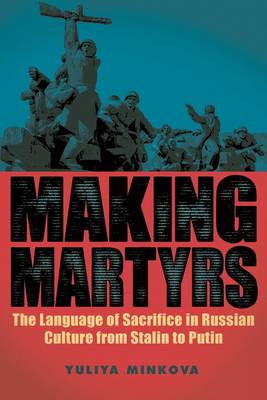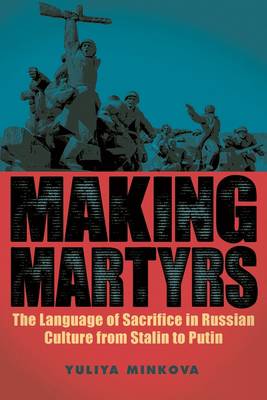
- Retrait gratuit dans votre magasin Club
- 7.000.000 titres dans notre catalogue
- Payer en toute sécurité
- Toujours un magasin près de chez vous
- Retrait gratuit dans votre magasin Club
- 7.000.0000 titres dans notre catalogue
- Payer en toute sécurité
- Toujours un magasin près de chez vous
Description
In Making Martyrs: The Language of Sacrifice in Russian Culture from Stalin to Putin, Yuliya Minkova examines the language of canonization and vilification in Soviet and post-Soviet media, official literature, and popular culture. She argues that early Soviet narratives constructed stories of national heroes and villains alike as examples of uncovering a person's "true self." The official culture used such stories to encourage heroic self-fashioning among Soviet youth and as a means of self-policing and censure. Later Soviet narratives maintained this sacrificial imagery as a means of asserting the continued hold of Soviet ideology on society, while post-Soviet discourses of victimhood appeal to nationalist nostalgia. Sacrificial mythology continues to maintain a persistent hold in contemporary culture, as evidenced most recently by the Russian intelligentsia's fascination with the former oligarch Mikhail Khodorkovsky, the Russian media coverage of the war in Ukraine, laws against US adoption of Russian children and against the alleged propaganda of homosexuality aimed at minors, renewed national pride in wartime heroes, and the current usage of the words "sacred victim" in public discourse. In examining these various cases, the book traces the trajectory of sacrificial language from individual identity construction to its later function of lending personality and authority to the Soviet and post-Soviet state. Yuliya Minkova is Assistant Professor of Russian at Virginia Polytechnic Institute and State University.
Spécifications
Parties prenantes
- Auteur(s) :
- Editeur:
Contenu
- Nombre de pages :
- 246
- Langue:
- Anglais
- Collection :
- Tome:
- n° 20
Caractéristiques
- EAN:
- 9781580469142
- Date de parution :
- 15-04-18
- Format:
- Livre relié
- Format numérique:
- Genaaid
- Dimensions :
- 152 mm x 229 mm
- Poids :
- 530 g

Les avis
Nous publions uniquement les avis qui respectent les conditions requises. Consultez nos conditions pour les avis.






